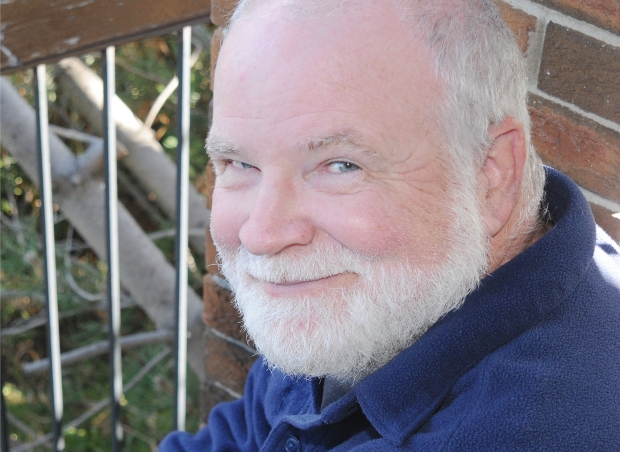Calgary crime novel has Detective Lane investigating religious extremism of all stripes
Novelist Garry Ryan was teaching at Forest Lawn High School in 2001 when someone decided to decorate the school walls with a message to Muslim students.
It was not long after 9/11 and the school had a number of Middle Eastern kids, mostly Lebanese, attending. The somewhat cryptic graffiti read “YOUR BLOOD: AN UNQUENCHABLE THIRST.”
“I just came to work and there was paint spilled on the ground and footprints in it,” says Ryan, in an interview from his Calgary home. “The guy put a colon inside the ‘D’ and we made a joke about it. Your BLOOB? What the hell is he trying to say? That was, I thought, a really good way to handle it.”
Perhaps. But the moment stayed with Ryan right into retirement and also makes it into his latest novel, Glycerine, complete with the confusing colon in the D.
It may offer a brief moment of levity in the seventh Calgary-based mystery in his Detective Lane series, but the book continues Ryan’s hallmark of filling his tales of death and mayhem with topical issues and a dose of social realism.
In particular, the book deals with fundamentalism of various shades. The ripped-from-the-headlines premise has the intrepid Lane — first name still unknown — investigating the death of a migrant worker. This leads him and his arrogant new partner, rookie Nigel Li, to a northern Alberta community run by John A. Jones. He’s an unholy mix of Alberta’s late fundamentalist Christian eco-terrorist Wiebo Ludwig and Jamestown cult leader Jim Jones and is suspected of bombing oil and gas pipelines.
On top of that, the brutal “honour killing” of a young girl in the city has ramped up anti-Muslim sentiment in the city just days before the Calgary Stampede, which is soon targeted by terrorists.
“It’s about a Canadian way of dealing why a fundamentalist who has turned violent,” says Ryan. “It’s that idea of fundamentalism and violence and the damage it does but also the way people can handle it. Right now we are trying to deal with that after what happened in Ottawa: Live in fear or move on.”
It wasn’t just the high-school graffiti that proved dark inspiration for Glycerine. Ryan says he often walks his dog past a neighbourhood Christian church that puts messages on its outdoor sign that seem directed at Islam, a “war of words” that the author claims recently carry less-than-subtle communiqués along the lines of “My religion doesn’t promote violence, why does yours?” He also attempted to read a book about the Shafia Family “honour killings” that took place in 2009 in Kingston, Ont., although admits he couldn’t get all the way through it because it was too depressing.
But the book’s point seems to be that religious extremism can arise from both Christian and Islamic faiths.
“It’s basically mysoginistic and it’s violent,” Ryan says. “There’s always these connections to these type of events. I don’t see a lot of difference between the two fundamentalist points of view.”
All of which could prove controversial in certain quarters. But Ryan has always used lessons he learned as a teacher to fuel Detective Lane’s Calgary investigations. Ryan retired in 2009 after a teaching career that placed him in both junior high and high school. He decision to make Lane openly gay was a response to bullying he had witnessed of gay students during his time as a teacher.
And the inspiration keeps flowing. Ryan says he is writing his 10th Detective Lane novel.
“I keep coming back to ‘ordinary people who are extraordinary,’” says Ryan, when asked about the appeal of his Calgary hero. “He’s just an urban hunter, a guy who has a nose for tracking down people who do things like this. He has a particular skill set. He’s just an ordinary guy, but he has this extraordinary skill.”
Garry Ryan will give a reading at Pages on Kensington on Friday at 7:30
.jpg)
